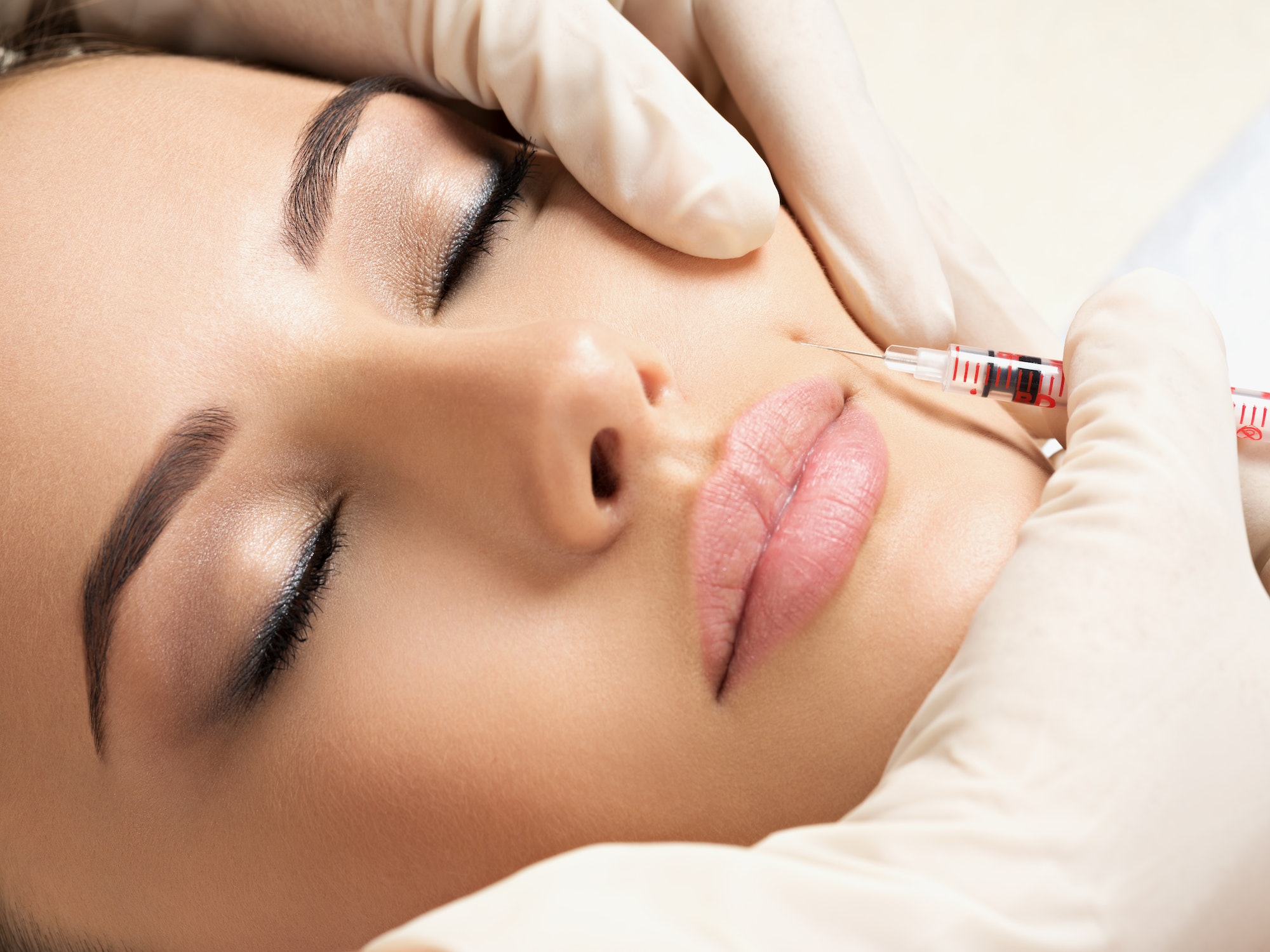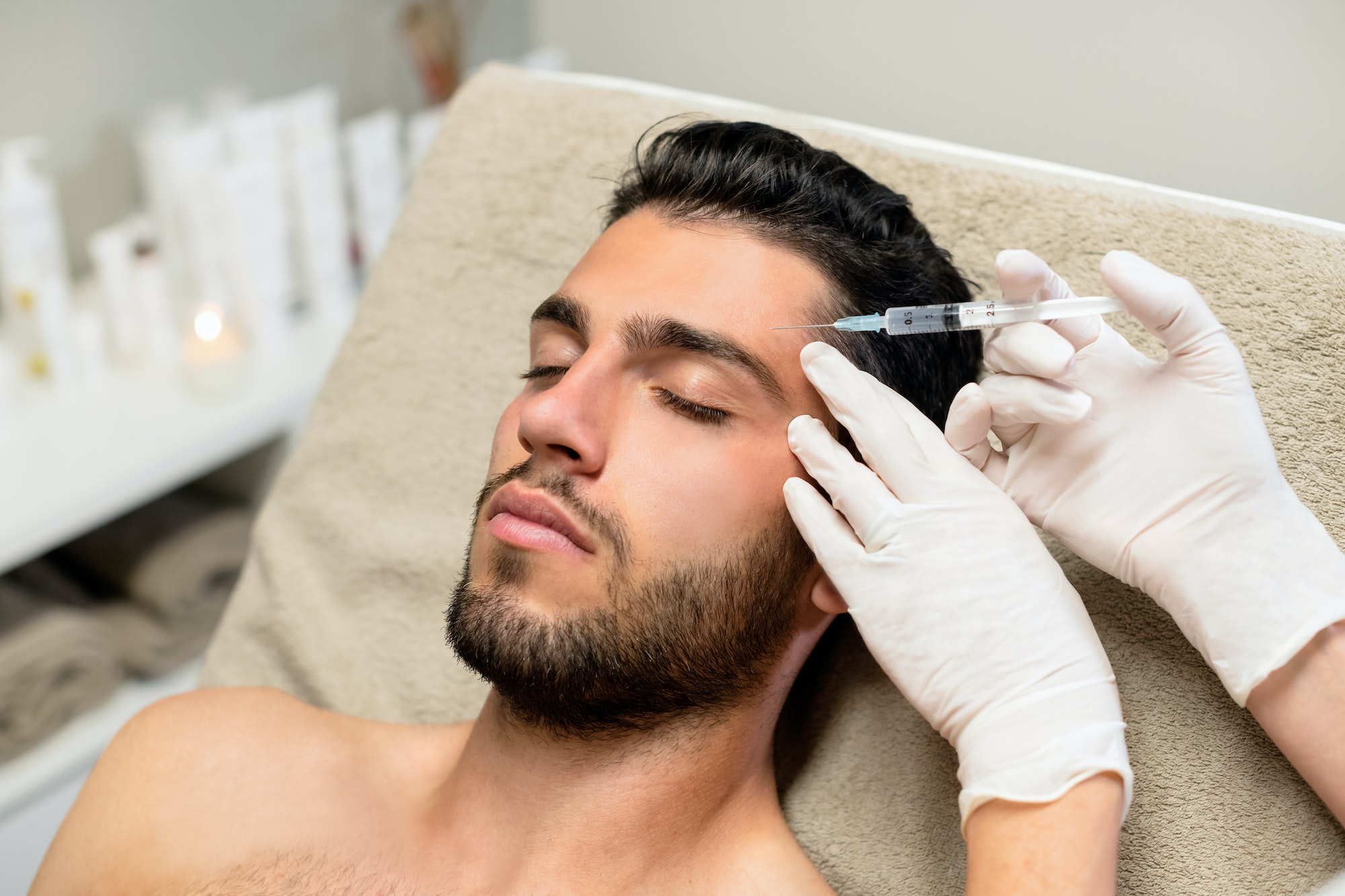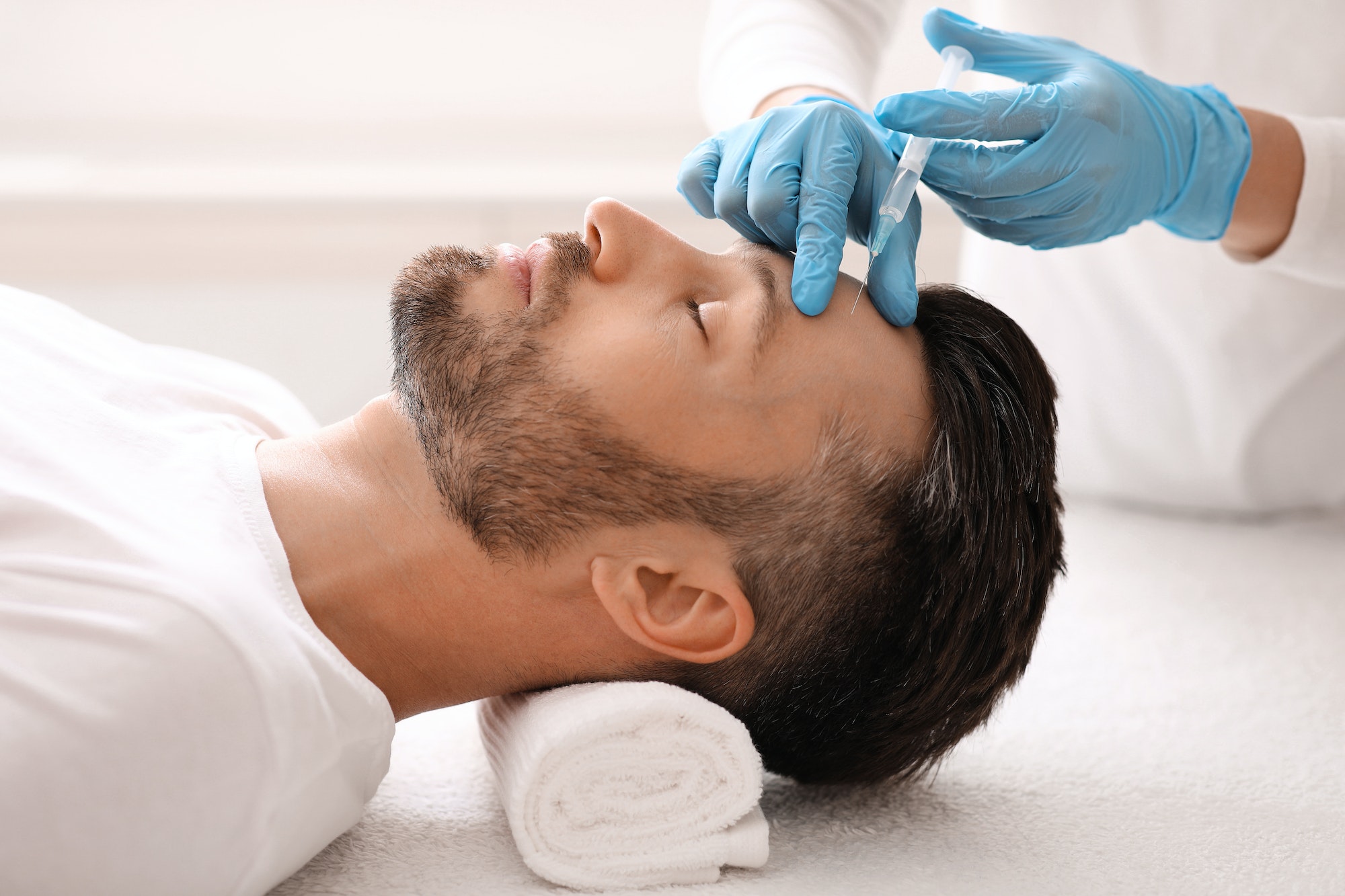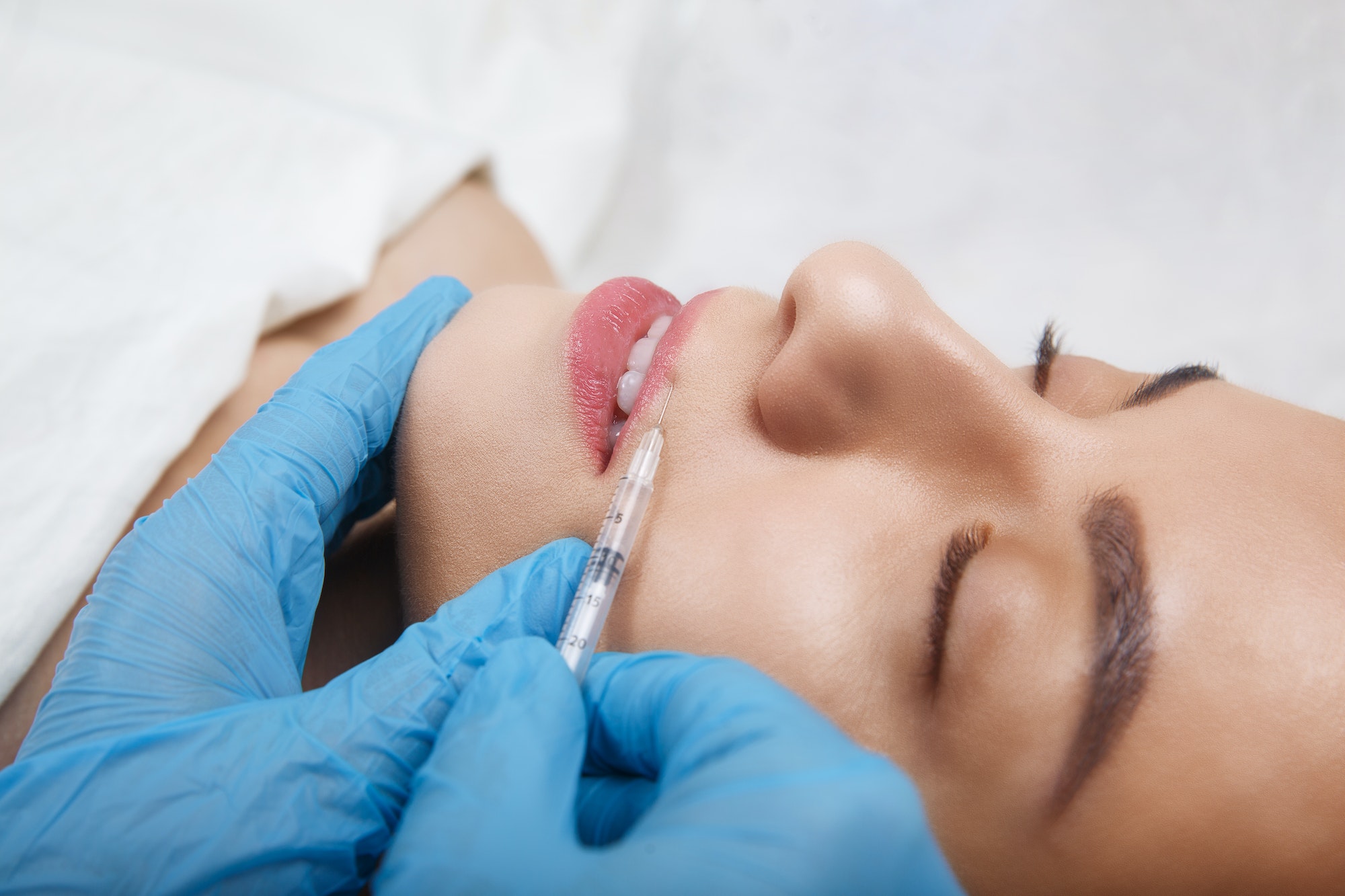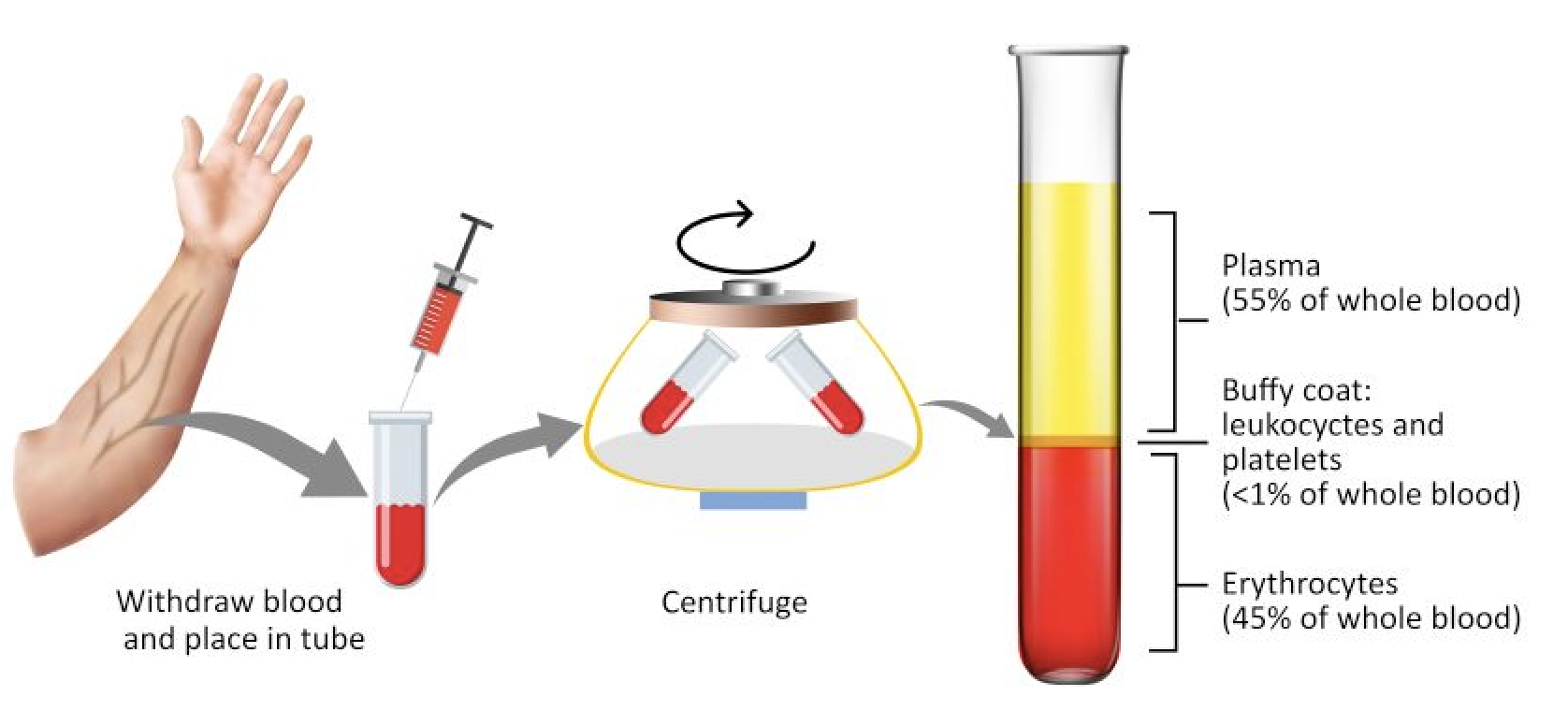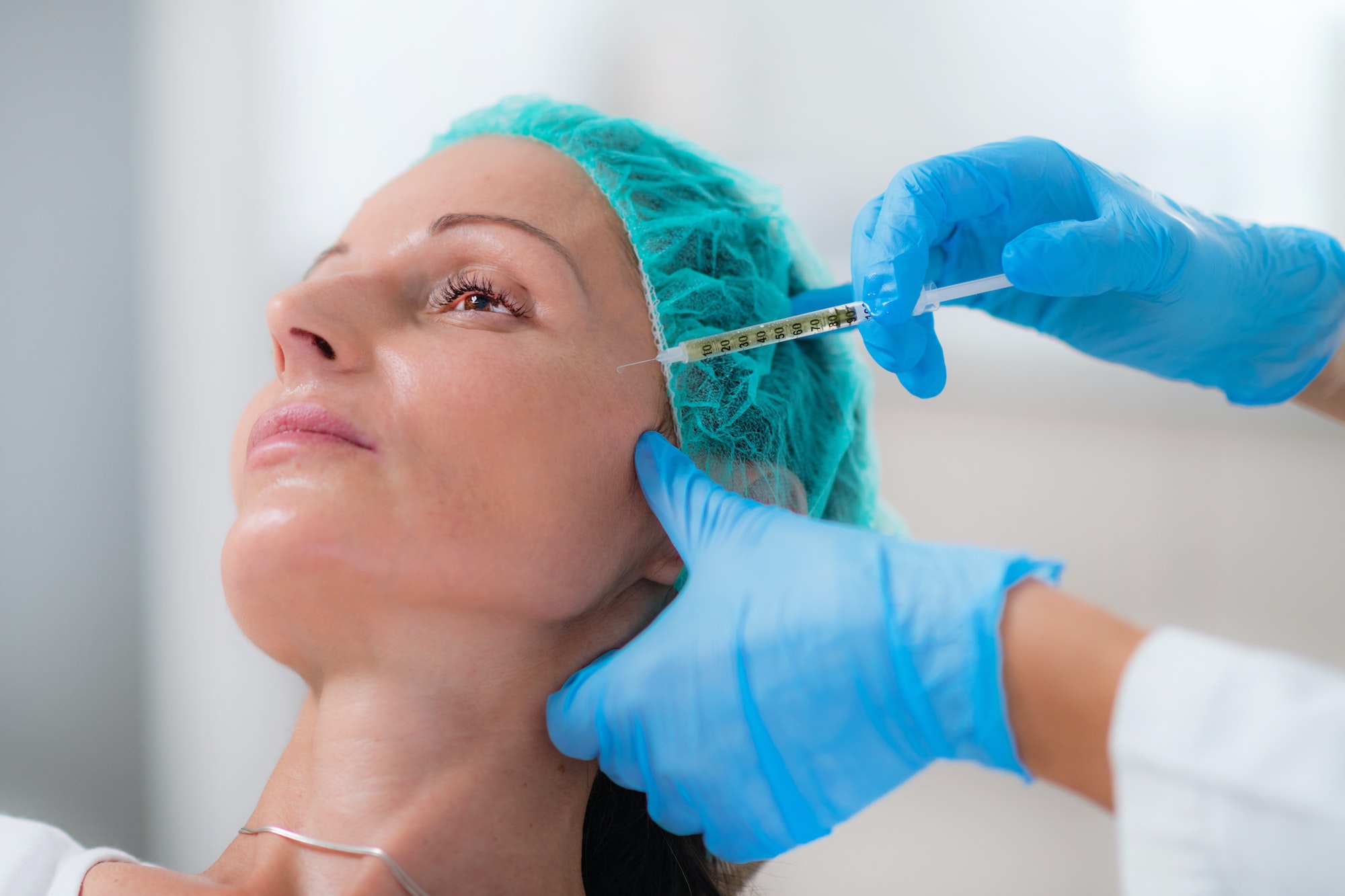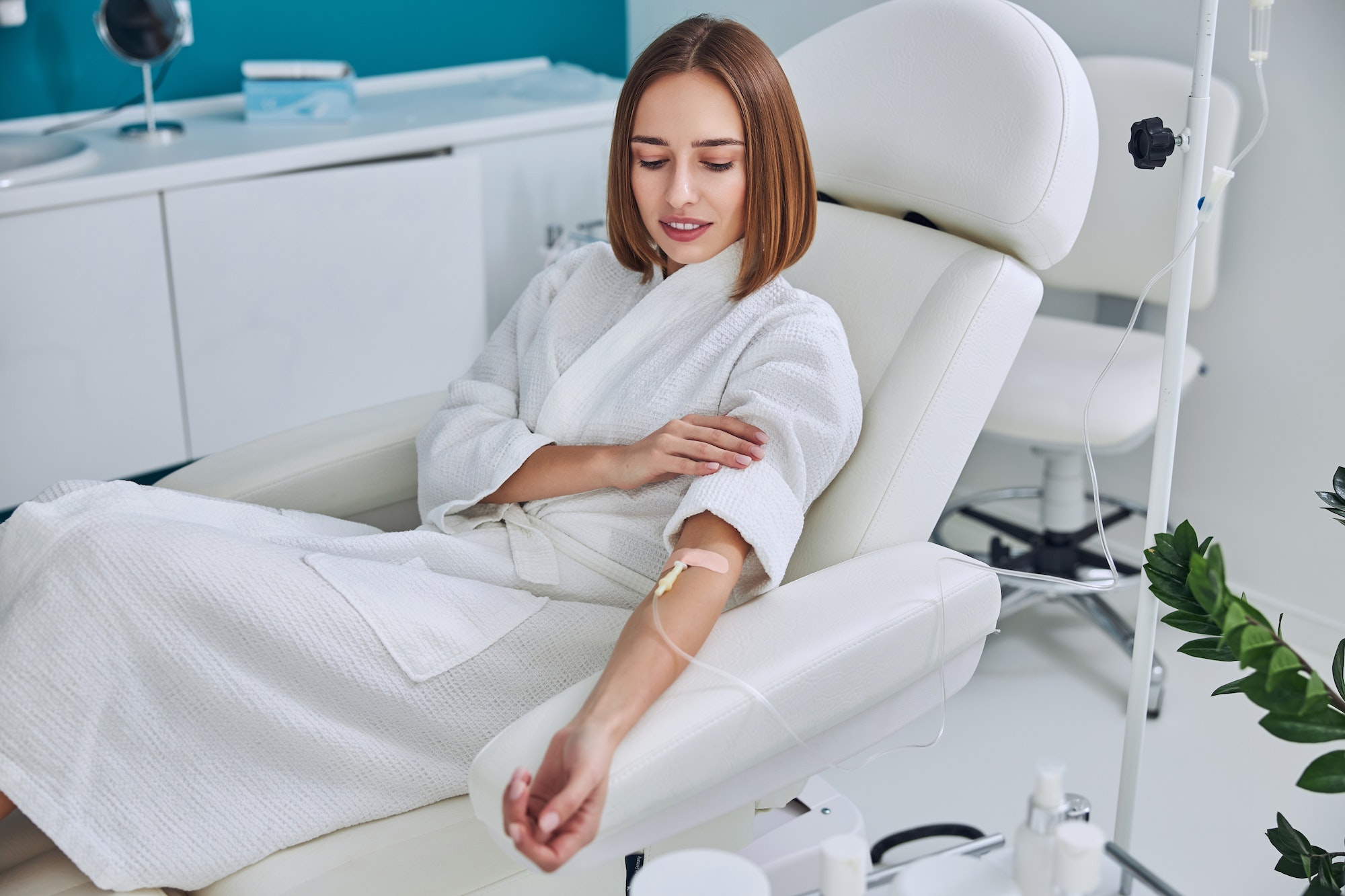Non-surgical proceduresBotox
The first treatment to combat signs of aging, Botox or Botulinum Toxin is a substance that will make you say goodbye to the traces of time, as well as prevent the formation of very deep furrows or wrinkles.
Uses of Botox
This muscle relaxant is used to treat different pathologies in the body, such as involuntary grinding and clenching of the teeth, excessive sweating, elimination of wrinkles on the face and neck, urinary incontinence and migraines. Botox is nothing more than a botulinum toxin that contains different therapeutic uses, used for many years and incorporated into the field of cosmetic surgery since 2002.
No special preparation is reguired. it is reguested to avoid the use of makeup before vour consultation. not injuries in the area to be treated, clean area and, let the Plastic Surgeon or certified Dermatologist know all your doubts along with what vou are looking for as a result. The Doctor evaluates the case and recommends the number of Botox units to be used and the areas to be treated. The application lasts between 15-20 minutes, so the consultation is usuall scheduled for 30 minutes.
The fully active effect is seen in 48 to 72 hours.
Slight redness or bruising in the treated area, which disappears in the next 24-48 hours. It is recommended not to lie face down during the first 4 hours to avoid migrating Botox to muscles that we do not want to relax.
There is usually a slight numbness that disappears during the day of application.
Non-surgical proceduresHyaluronic Acid Filler
The filling of cheekbones, wrinkles and furrows can give you a younger and healthier look optional to traditional face lift treatments. Almost without realizing it and in just 30 minutes you can have radiant and smooth skin. The results will last between 9 months and 2 years, depending on the type of Hyaluronic Acid that is placed and the area of the face.
How does it apply?
The hyaluronic acid filler is a gel that is applied by means of micro-injections directly into the skin and, in addition to replenishing the lost hyaluronic acid, it allows to reshape shapes and contours of the face and lips, and to give volume in the areas modified by the process of aging; It also allows filling in furrows and static wrinkles, that is, the deepest and most visible wrinkles with the face at rest.
Although it is indicated for women who want to eliminate wrinkles, recover the volume and contours of the face, it is the doctor who will determine the most appropriate indication for each patient.
Non-surgical proceduresPRP Platelet Rich Plasma
The objective of this therapy is to favor, stimulate or initiate the healing, regeneration or healing process of the damaged tissue, applying it locally on an outpatient basis or as a complement to a surgical technique.
Platelet-rich or platelet-enriched plasma consists of an autologous blood sample in which the platelet concentration is higher than the physiological one. Platelets have in their a-granules a large amount of growth factors that are released locally when they are activated.
The preparation consists of the extraction of blood from the patient, centrifugation of the sample and separation of the fraction with plasma and platelet concentrate. Red cells always separate. The PRP preparation can be applied as a local infiltration, as an intra-articular infiltration or as a platelet-rich fibrin gel, the latter being more solid and more frequently used.
Non-surgical proceduresIV Therapy
What Is IV Therapy?
IV therapy is a delivery method for fluids and medication. “V” stands for intravenous, which means it’s administered through the veins. The fluid that contains vitamins and minerals or medication is delivered via an IV drip or injection into the vein, which allows the therapy to move quickly through your bloodstream.
IV therapies are administered by a healthcare professional usually a nurse, for a variety of different reasons, from dehydration to medical emergencies. IV therapy can also help address symptoms related to conditions like the cold, the flu, morning sickness and hangovers. In this guide, we’ll discuss how IV therapy works, what its benefits are and how vou can get started.
IV therapy is a straightforward procedure. Regardless of the type of IV therapy you are receiving, you can expect the process to be pretty uniform. The nurse administering the therapy will talk you through the procedure. Generally, you will be seated somewhere comfortable for the duration of the therapy. The nurse will disinfect the injection site and place a needle directly in a vein. The IV will typically be placed in the arm, but it is possible to be placed elsewhere.
How Long Does IV Therapy Take and How Long Do the Effects Last?
IV therapv drips amino acids, vitamins, minerals and fluids at a controlled rate. Once vou are connected to the IV, which is usually a quick and simple process, the duration of the therapy will depend on why you are undergoing IV therapy. This process can take longer, but will typically require 45 minutes to an hour of your time. Some IV therapies can be done relatively quickly, while others will take longer.
How quickly will you feel the effects of the IV drip?
Again, the answer depends on why you are undergoing IV therapy. In some cases, you may feel the effects almost immediately. In other cases, it may take more time. The effects can last for up to a few days after completing the procedure dependina on a number of different factors
How quickly will you feel the effects of the IV drip?
Again, the answer depends on why you are undergoing IV therapy. In some cases, you may feel the effects almost immediately. In other cases, it may take more time. The effects can last for up to a few days after completing the procedure dependina on a number of different factors

